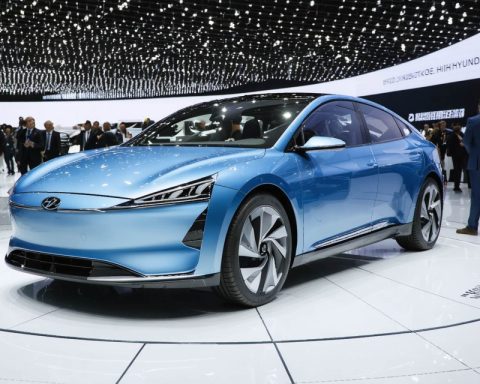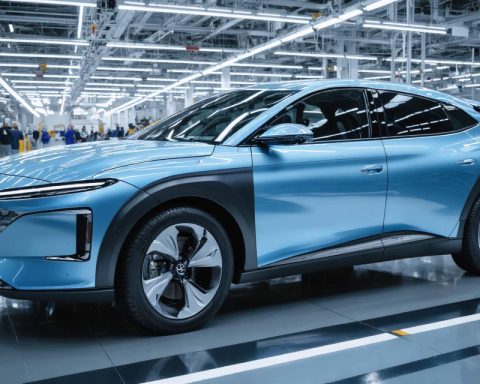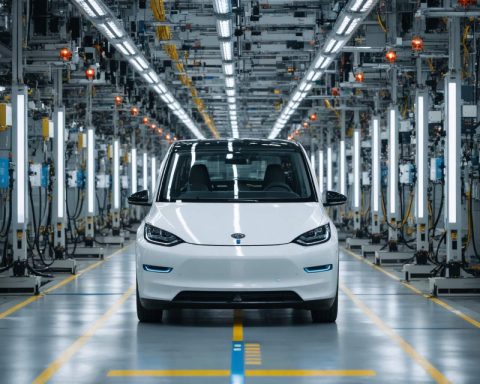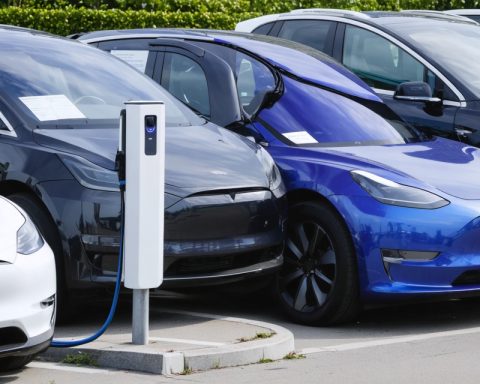When envisioning the future of global energy, Elon Musk sees the sun as our savior. Imagine a civilization predominantly powered by solar energy—this is the future Musk advocates as both innovative and essential. Rejecting nuclear and hydrogen as primary energy sources, Musk firmly champions solar energy, envisioning it as the unavoidable leader, thanks to its technological progress and limitless potential.
The CEO of Tesla has been vocal about the transformative power of solar energy. In his vision, this renewable resource is not just supplementary but essential for future civilizations. According to Musk, understanding concepts like the Kardashev Scale, which measures a civilization’s technological advancement based on energy consumption, makes it evident that solar power will become dominant.
Musk points out that a single square mile of land can receive around 2.5 gigawatts of solar energy, potentially translating to 3 gigawatt-hours daily with efficient solar panels. Tesla’s Starlink satellites, powered entirely by solar and battery technology, exemplify Musk’s commitment to this green future.
The sun’s immense energy is not just abundant but clean, offering a stark contrast to finite and polluting fossil fuels. Musk underscores recent breakthroughs in solar panel efficiency and battery storage that make solar power a practical and scalable solution for global energy demands.
Critiquing nuclear and hydrogen, Musk highlights their shortcomings. He cites the disastrous implications of nuclear failures and the resource-intensive process of hydrogen production as reasons to prioritize renewable alternatives. With his eye on the technological frontier, Musk positions solar energy at the heart of humanity’s sustainable future, boldly navigating through challenges to illuminate a brighter path forward.
Unseen Impacts of Solar Energy Revolution: How Musk’s Vision Could Reshape Our World
Revolutionizing Humanity with Solar Power: Unspoken Ripple Effects
Elon Musk’s advocacy for solar energy isn’t merely about harnessing the sun’s power. It’s about unleashing a transformation that could radically alter how societies function, address climate change, and redefine the geopolitical landscape. While his criticisms of nuclear and hydrogen might grab headlines, what’s often left out of the conversation are the potential societal and economic impacts of adopting solar energy on a global scale. Let’s delve into these unseen facets of a solar-powered future.
What Could This Mean for Developing Countries?
One of the most exciting prospects of widespread solar energy implementation is its potential to uplift developing nations where traditional energy infrastructure is lacking or unreliable. By bypassing the costly and labor-intensive process of building centralized power plants and extensive grid systems, solar offers a decentralized solution that can be rapidly deployed in remote areas. This could drastically improve living standards by providing reliable power for schools, hospitals, and businesses.
Can Solar Energy Reduce Global Inequalities?
There is a school of thought suggesting that solar energy could level the economic playing field by reducing energy costs and dependency on fossil fuel imports. Countries rich in sunlight but not oil reserves can generate their own electricity, thereby gaining economic independence. This shift could reduce global inequalities and reshape international relations where energy trade often tilts power dynamics.
Solar Panel Waste: The Environmental Conundrum
While solar energy is inherently clean, the panels themselves pose an environmental challenge. Solar panels have a lifespan of about 25-30 years, after which they need to be discarded. There’s a growing concern about the potential waste issue, as millions of panels might need disposal or recycling in the near future. Developing robust recycling techniques is crucial to ensure that this green energy source remains environmentally friendly.
What Are the Economic Implications for the Fossil Fuel Industry?
The rise of solar energy threatens to disrupt the multi-trillion-dollar fossil fuel industry profoundly. This transition could lead to economic instability in regions heavily dependent on coal, oil, and gas jobs. Re-skilling workers and ensuring a just transition is vital to prevent widespread unemployment and economic downturns in these communities.
The Role of Innovation in Driving Solar Efficiency
Musk often emphasizes the need for continued innovation to enhance solar panel efficiency and battery storage capabilities. Breakthroughs in materials science, nanotechnology, and AI are crucial in this context. For example, perovskite solar cells promise higher efficiency rates but face challenges like long-term stability that need addressing through rigorous research and development.
Is Musk’s Vision Feasible Globally?
While Musk’s dream is appealing, several logistical and economic hurdles must be overcome to make solar energy the dominant global power source. Regional climates vary, affecting solar viability, and significant investments in storage and grid technology are necessary to handle solar’s intermittent nature. Moreover, political will and supportive policies play a critical role in facilitating the transition to renewable energy.
Interesting Links for Further Exploration
For more information on the exciting future of solar energy and the ongoing innovations that might change the world, visit Tesla and explore their work on sustainable energy solutions. Additionally, insights into the challenges and opportunities of renewable energy can be found at International Energy Agency (IEA).
These aspects underline the complexities of transitioning to solar energy and highlight its potential to reshape societies and economies. As Elon Musk and other visionaries push forward, the world watches to see how these transformative ideas will unfold.














